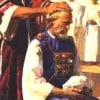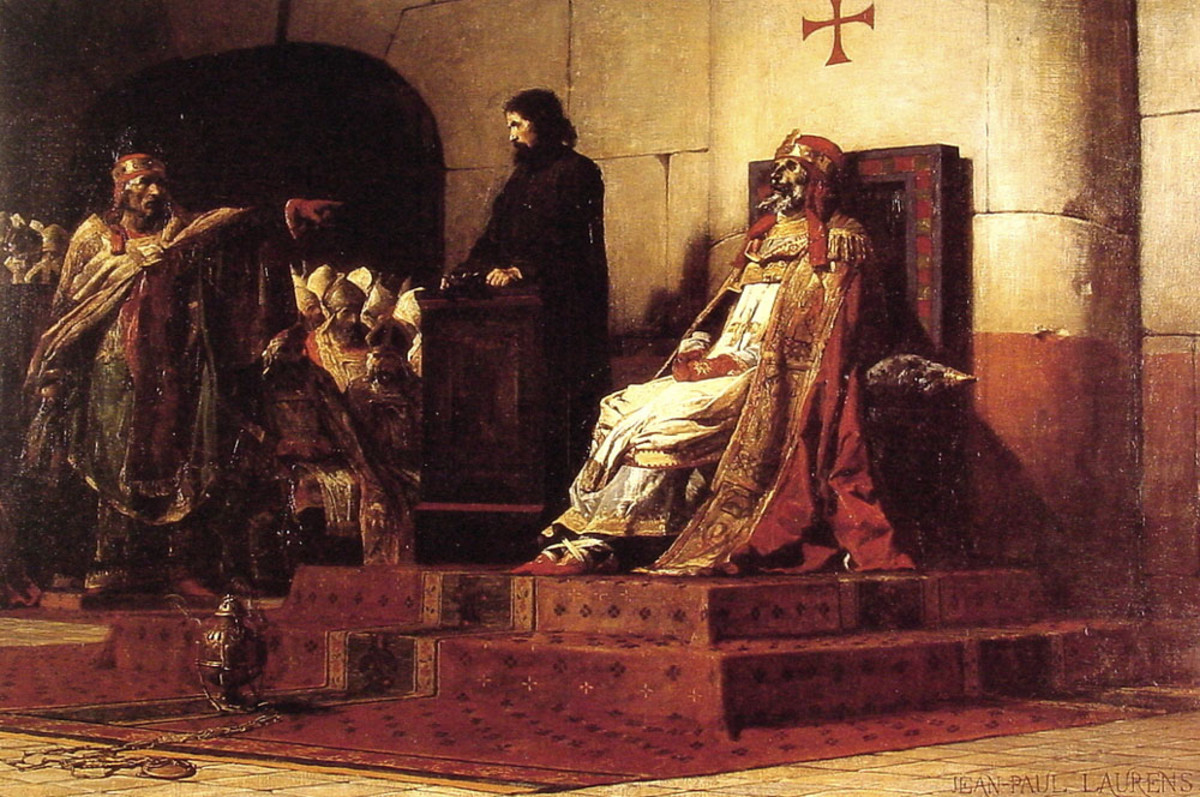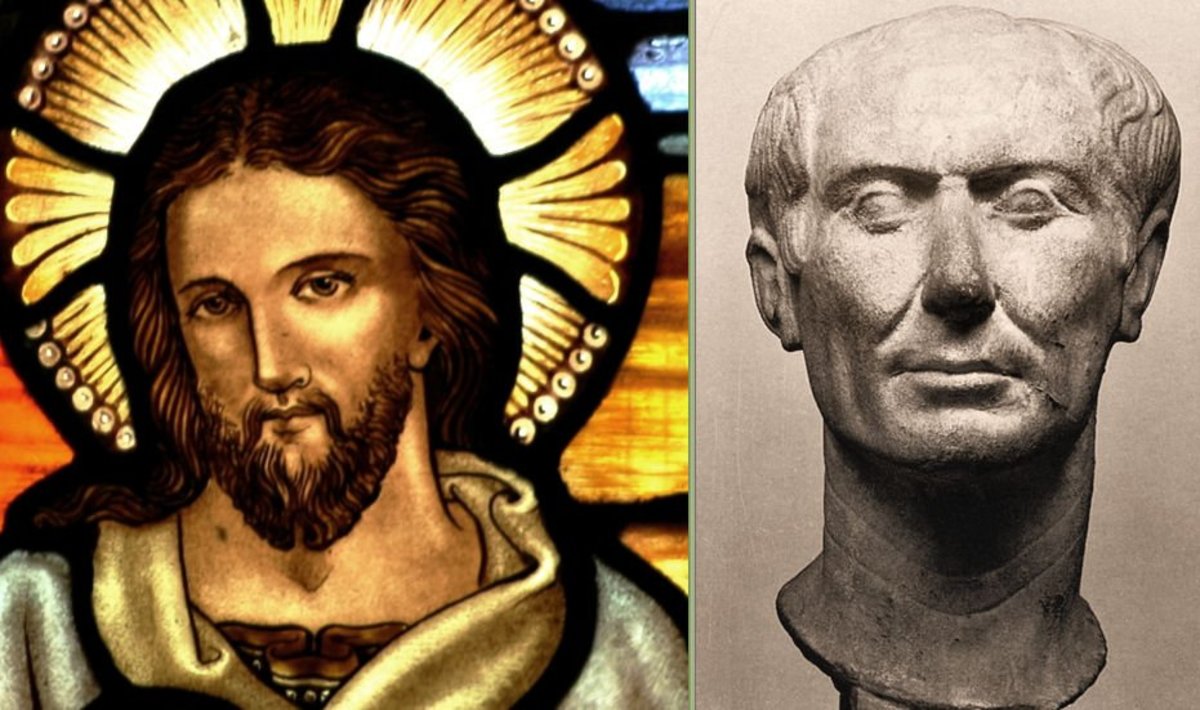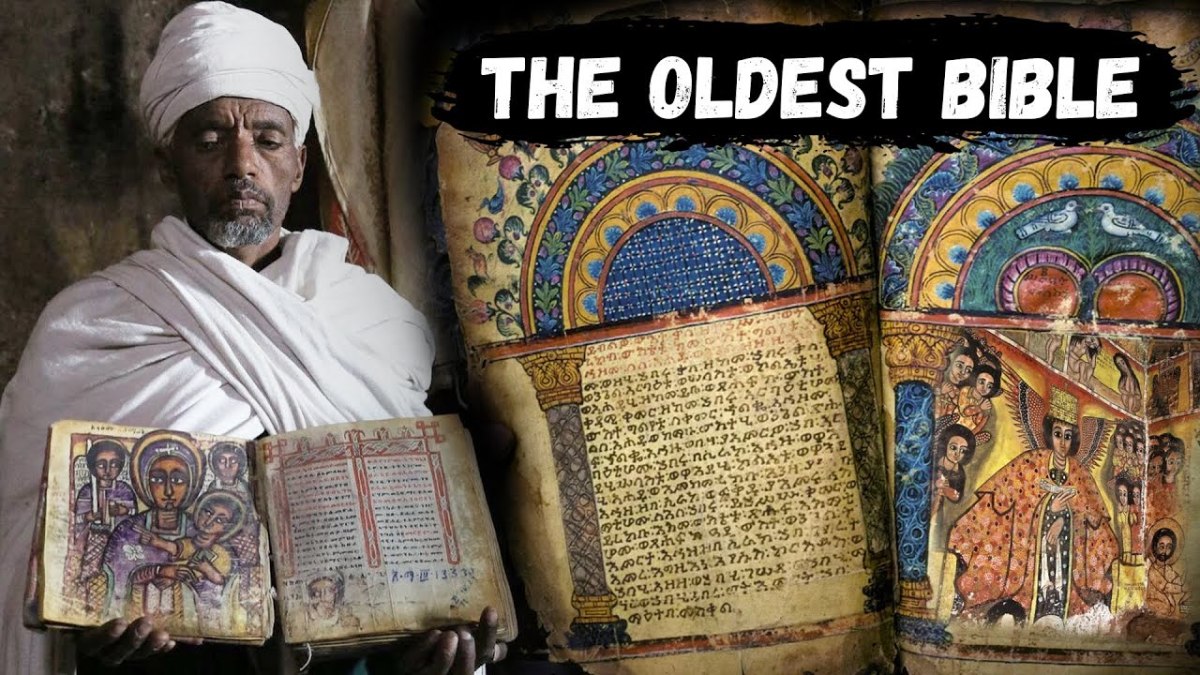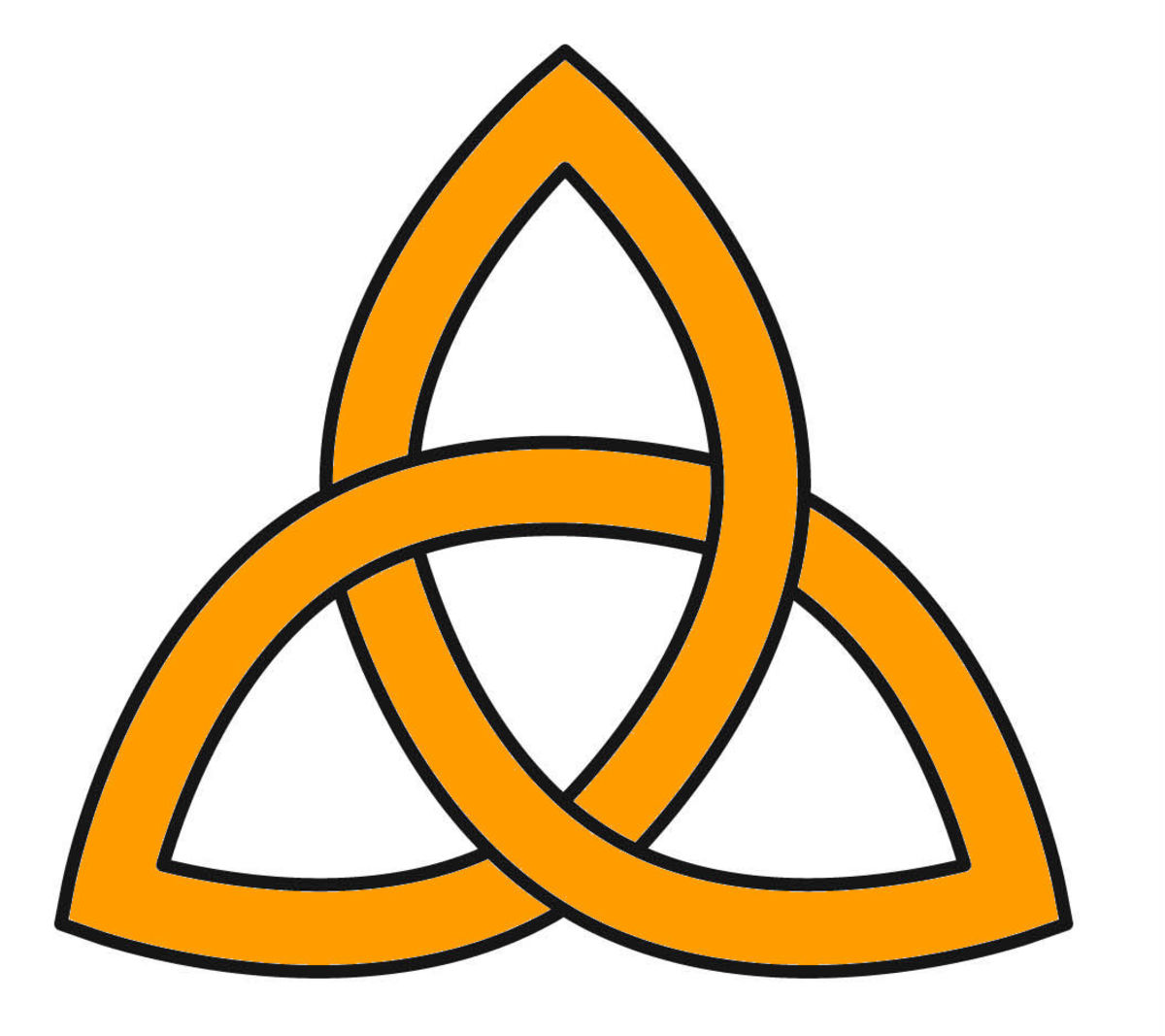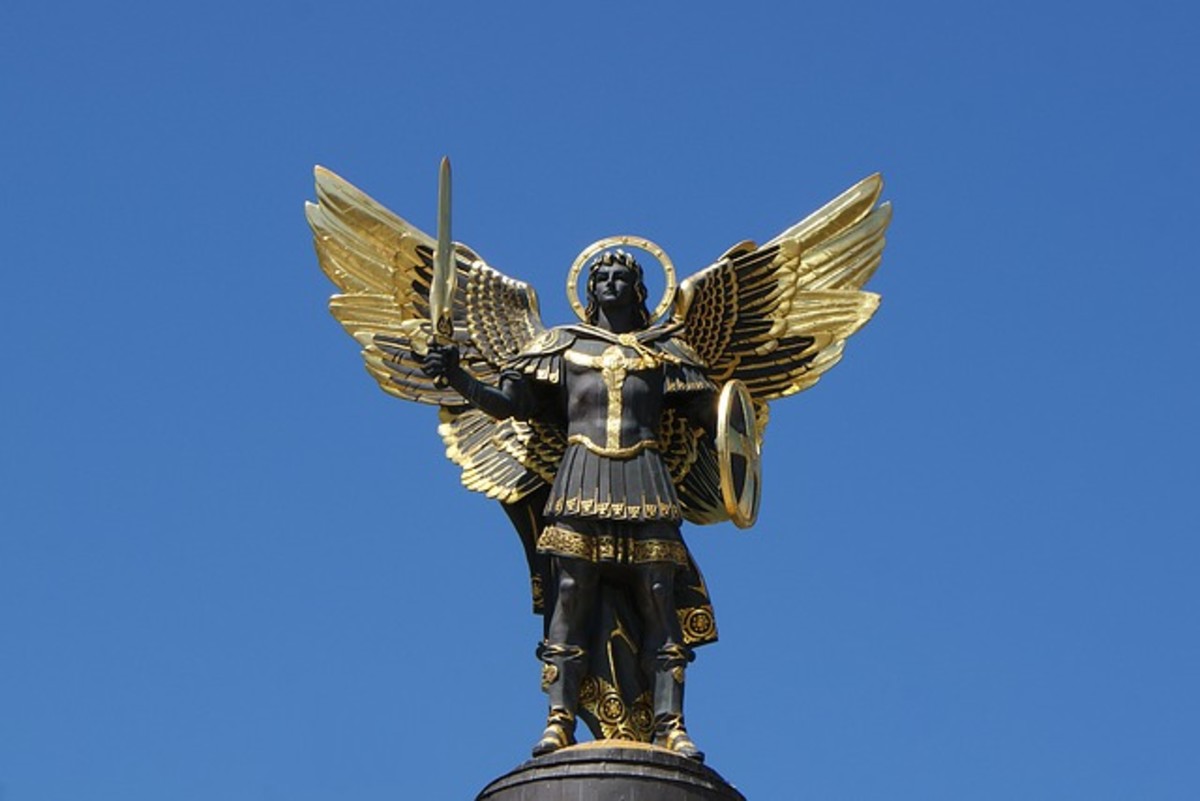Toldoth Jeshua: The Trial of Jesus
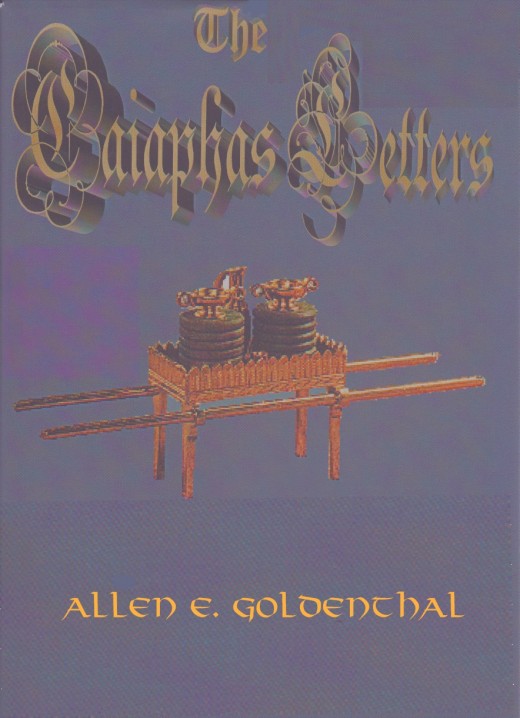
I'm going to talk about another book I happen to have in my collection. And just like the Clavis Talmuda, this one too is laden with cryptic messages. As the title of this hub suggests, it's called “Toldoth Jeshua". But what's it mean? That would be the first cryptic message. It translates as the History/Generations of Jesus. An odd title since according to the New Testament, Jesus didn't have any prior history or generations afterwards (offspring) to speak of. But this book that was written in about the 14th century and based on material from the second century had a lot of interesting things to say. I came into possession of this document after I wrote and published Caiaphas Letters so its quite amazing that it confirms many of the statements I make as fact in my book. A confirmation that things were definitely not as portrayed in the four recognized gospels.
One of the most serious and antisemitic libels made against the Jews was the blame for killing Jesus. Pope John Paul II fortunately condemned this libel and expunged it from the Roman Catholic teachings, and this should be appreciated, but it was very long in coming and over the last two thousand years the number of Jews that died because of this libel were astronomical, especially when one considers it was a premise to the Nazi holocaust.
Now what I'm about to write may sound a little controversial and inflammatory and contrary to the previous paragraph but based on the writings by the Jews in the second century it may not have been entirely all the Church’s fault for fostering this belief in the first place? What if I was to say that the great sages of Judaism in the second century AD,the Tannim or these teachers of reverence that put together the Talmud were responsible in part for the libel themselves! That in an effort to show the world how strict they were as enforcers of God’s will, they were willing to spread a lie, even if that lie was incriminating, either because their brains were too addled with age, or as myself being a Karaite believes, they were only interested in hearing the sounds of their own voices and therefore were more than too happy to tell everyone this particular lie even if eventually it was to their own detriment.”
What most people don't realize is that these so called paragons of virtue and Judaism actually wrote a section into the Talmud concerning their role in Jesus’ death! Let me tell you quickly what it said:
“It is taught that for all others liable for the death penalty, except for the enticer to idolatry, we do not hide witnesses. They light a lamp for him in the inner chamber and place a witness in the outer chamber so that they can see and hear him while he cannot see or hear them. One says to him,” Tell me again what you said to me in private.” If the prisoner repents, then good, but if he says, ‘This is our obligation and what we must do,’ then he is to be brought into the courtroom and stoned. And then they hung him on the eve of Passover.”
If you're trying to follow the connection to Jesus, which is difficult because they're describing the accused in terms of third person, let me explain that what these Rabbis were trying to recall was a very special meeting of the Sanhedrin that happened a couple of hundred years earlier. So there were no firsthand reports or witnesses alive by this point. For your benefit, I'll point out some of their more controversial comments that should start you thinking. It was a night meeting, hence the need for the lamp. The courts of the Sanhedrin were held in buildings that relied on natural light, therefore it was prohibited to meet at night unless it was an emergency. It was a given that the truth could only be revealed in the light of day, or God's light. Hence all trials were to be conducted in daylight hours. In this case it obviously was considered an emergency and therefore we know they're writing about a particular case and not a generality as its first portrayed. But they got several of the historical facts wrong in their attempt to recount the story. The witnesses placed outside were actually there to come in and defend the accused. The tribunal members were already inside. The accusers actually sat on the tribunal, so this was a case of guilty until proven innocent. These accusers were the judges, not the witnesses. As we know from the stories about that night, Jesus's main witness refused to enter into the chamber as three times Peter denied not knowing him. Without his second witness, (it took two witnesses to prove you innocent of the charges), Jesus was condemned. For the identity of the first witness, you will have to read Caiaphas Letters. Now the rabbis in this particular paragraph never refer to Jesus, only to an idolator, so the question should be how do I know they’re not talking about another case? Because in the Toldoth Jeshua of which the original was also written at around the same time, it refers to this section of the Talmud as being the trial of Ben Stada. It would have been more correct to refer to Ben Stada as an alias rather than a particular person in order to understand their play on words. The Rabbis loved to do that back then. They thought they were quite funny. They did it with the next messiah too, Simon Bar Kochba. As soon as he lost the war, they referred to him as Simon Bar Kosiba, or ’the son of lies’. Somehow they forgot that it was one of their own, Rabbi Akiva that proclaimed him as the messiah in the first place. So they did the same thing to Jesus as well. He would have been referred to as Jesus Ha Stadlan. The intercessor by his followers. Because that’s what he did. He was the intercessor for people to reach God. Remember that he said everyone seeking God must come through him so in essence he referred to himself as the 'Stadlan'. But these rabbis wouldnt' refer to him as an intercessor for God but instead would call him Ha Stota or Stada in the Aramaic dialect. And rather being the Stada they would demean him further by referring to him as Ben Stada or the ‘son of absolute utter nonsense’ or as we would say in today's lingo, the son of bullshit.”
Also remember that in the Talmudic verse above it says that he was taken out and stoned and then hung from a tree on the eve of Passover.” There are three important things you should notice right here. Firstly, if he was stoned to death, why were they bothering to hang him on a crucifix? You couldn’t kill a man twice now, could you? And then secondly there’s the matter that the Roman authorities only let the Sanhedrin stone people for religious crimes as they didn’t have the authority to crucify a prisoner for a political crime. And lastly, notice how it was the eve of the Passover. Just as I described it in Caiaphas Letters. The Gospels all say the crucifixion happened on the Passover. So this passage from the Talmud is in harmony with what I've written. So rather than stoning and then crucifying it implies that he was brought to the Jewish court first for religious crimes but they could not arrive at a conviction, therefore survived the stoning punishment because it never took place, and was then taken to the Roman courts, or in this case Pilate, and he was then convicted for political crimes and was crucifed. So the Talmud verse isn't incorrect, it merely relates the two stages of his trial and how it progressed from a religious matter into a political conviction.
In another passage of Toldoth Jeshua it is written: ‘On the eve of the Passover they hung Yeshu and the crier went forth for forty days beforehand declaring that Yeshu is to be stoned for practicing witchcraft, for enticing and leading Israel astray. Anyone who knows something to clear him should come forth and exonerate him. But no one came forward in his defense and they hung him on the eve of Passover. Yeshu was different because he was close to government.’ So now you have the Toldoth Jeshua in harmony with that passage from the Talmud and both confirming it was the eve of the Passover and that this individual was named Jeshua or Jesus. Once again the Toldoth Jehsua is providing some interesting aspects that other than in Caiaphas Letters, no one else has ever mentioned. For almost a month and a half there’s this attempt to try and create a case so that he can’t be touched. The emphasis in Toldoth Jeshua was they they tried to prove him innocent asking people to come forward to clear and exonerate him. Why else would you wait so long to try someone unless you were trying to find evidence to declare innocence. If you were after a conviction you would try them as quickly as possible before they had a chance to prove their innocence. Very different from the condemning version in the Talmud. But when it came to the night of the trial, those that were supposed to exonerate him never came through. In other words, Peter didn’t do his part of the plan. So they weren't able to convict him but they weren't able to free him either because he didn't have that necessary second witness. In otherwords it was a hung jury. Therefore subsequently he was referred to Pilate to face Roman justice and the rest as we know is history.
The writer of the Toldoth Jeshua tries to explain this special treatment of trying to save him by giving him 40 days in which to find witnesses to prove him innocent was due to the fact that he was close to someone high in the government. Well, they might as well have said because he was related to the High Priest because the only Jewish government at the time was the High Priest, everything else was controlled by the Romans. And to be close was another way of implying a familial relationship. Therefore it suggests that he was being helped by the High Priest at the time who just happened to be Caiaphas. A very different portrayal of the High Priest from that in the gospels. Again the details of the Toldoth Jeshua confirms the High Priest family connection that I described in Caiaphas Letters.
The question one has to answer is why? If as it's recorded in the Toldoth Jeshua there was a definite attempt by the officials in Judea to save Jesus, and this book was based on original documentation from a similar time period as the Talmud, why would a group of supposedly educated men, paragons of virtue who were writing the Talmud write such a stupid and inaccurate verse that actually suggests the Sanhedrin wanted to kill Jesus. The answer is simple; they couldn’t stop themselves. The whole idea behind the Talmud was to write as much down as they could remember because there was no central stores or archives left following the destruction of the Temple. Then they would analyze and embellish what they had written. But in a lot of the cases, this embellishment was merely the addition of hearsay and innuendo. Their memories of events may have been poor, but their imaginations certainly were not. They were in overdrive. They didn’t even try to be accurate. By the time the Talmud was being written, Christianity was already becoming the new power and Jews were already being persecuted by this new religion. In there defense they thought they could counter the growth of the new religion by telling a very disparaging story and gloat about the death of the Christian messiah to stop the number of converts from Judaism. Human nature has remained a constant throughout history. And this was one way of saying, “in your face, buddy! Stupid, yes, but then these supposedly intelligent men never thought the Talmud would be read by anyone that wasn't Jewish. In their minds they felt they were disproving the claims of Christianity by saying Jesus was nothing more than an idolator that worked evil magics. After all, how could he be the son of God, or for that matter, even the messiah, if they could kill him? So this invented story of theirs became our own undoing. We suffered because they gloated. But worst of all, they gloated over an entirely false and ludicrous story that they created for their own personal egos and their miscalculated belief that ridicule would stop the spread of Christianity.”
Now one might point out that as a Karaite, I have no fondness for the Rabbis of old, I certainly don't give any credence to the Talmud and therefore I view them in a negative light. True, I admit it. We suffered for two thousand years because of their misguided beliefs. Had they only stayed to the facts, I think they would have found that most educated people would have understood what occurred in the framework of the time and circumstances. I would be naive in saying that the early Church would not have pursued its policy of deicide if these Rabbis hadn’t written the inaccurate story of Jesus into the Talmud but I don’t believe the persecutions would have been conducted as vehemently as they were. What you have in the Gospels is the story of Caiaphas sending Jesus to Pilate, then to Antipas, and then back to Pilate. Pilate pronounced sentence and Roman soldiers performed the execution. You actually have evidence of the Jewish authorities abdicating their responsibility and handing it over to these other powers. Therefore the role of the Jewish authorities is minimalized.
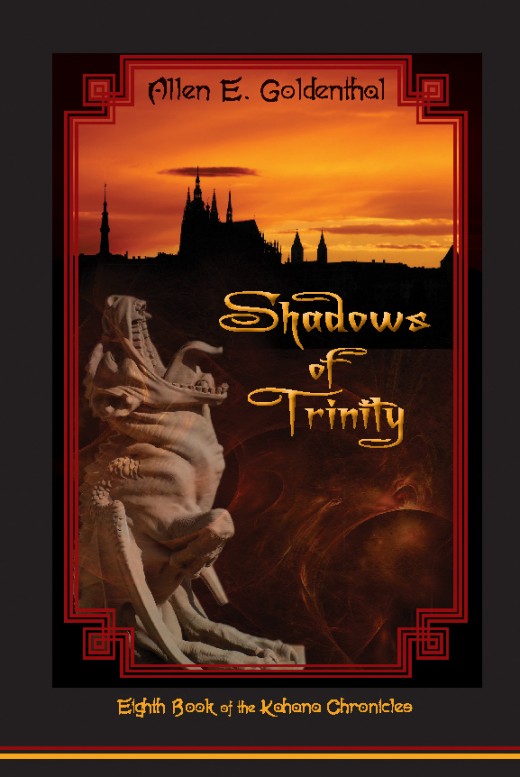
When you read about the confrontation between the Maharal, Rabbi Judah Loew, and the Nasi, Yakov Kahana in Shadows of Trinity, you are seeing the two worlds of Karaism and Judaism clash. The former regarding the Talmud as the work of foolish men and the latter that deemed themselves worthy of interpreting Gods words, convinced that there were hidden meanings, detailed instructions, and numerous restrictions behind every word. But as the above story has pointed out, words can be very dangerous when they used improperly. Less would have definitely been better!
